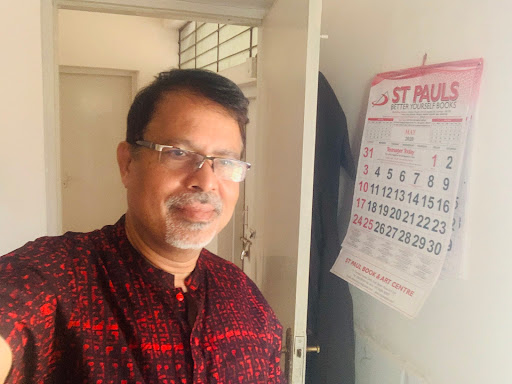On
the 5th day of CPO began with Br. Fernando presenting on the theme
of “Work in the Bible”. He as a Biblical scholar with deep and solid knowledge
of the Biblical world did a fabulous job in presenting the meaning and
significance of work in Bible and how we Capuchins need to look at work in that
sense. He said that we, Capuchins need to enter into the lives of people, their
fraternities, to stay with them and this is how we will celebrate the Eucharist
and break the bread with them…distribute to them in their own conditions. He
further said that We have a mission and challenge to face like st. Francis who
re-built the house of God which was in ruins. He invited all the participants
to Enter into the grand vision of Biblical work.
In
our days, and always, and always increasing, it is a number of the ‘gods’ that
command human work. Today, a time of exodus and of many exoduses continues to
be the time of walking beside many who continue to be forced to serve ‘their
lords’. Toda, a time of exodus of may exoduses, it becomes ever more urgent
that we ;”friars” without fear of being
‘being branded,’ walk and struggle along with those who are not able to pass
their ‘Jordan’….
The
speaker said that as poor people we are obliged to obtain with our work all
that is necessary to provide for our life and for the life of the poor with
whom we must hare our existence. The poverty to which we are called is not that
of ‘not having’ but that of ‘not possessing.’
The poverty of the ‘anawim’ to which we are committed by religious
profession is that of sharing in the light of the challenge of the
beatitudes. We are living in hard
realities, challenging times that touch us in our lives in the challenges
proposed by Christ and fleshed out by Francis, to ‘be people with the people,
so that ever more people might be people and no one ever ceases to be a
person.’
The
speaker further noted that all human effort that is not a search for God is
without direction; all work that is not perceived in the light of the
establishment of the kingdom is converted into chastisement, into punishment,
into the sweat of uselessness of a ‘monastic life’ full of religion and empty
of faith.
He
said that the ‘beginning’ of the Biblical reflection on work is not Genesis, as
we have seen, but the Exodus! The human being, with his work, becomes the one
who continues and cares for God’s work of creation; it’s not about a punishment
but a ‘being with….,’ of being a relationship! He explained that to be people
with the people, so that ever more people and no one ever ceases to be a
person. A God of relationship that
challenges to relationship, a
‘provoking’ God that drives the people in their exodus of the dream of
freedom to meet themselves, in order to then understand what we must all
accept: God has turned to us….
Work
is not a punishment, but an exercise of liberty! This is the Biblical genesis
of the concept of work. We are lost at the point of losing what is essential in
our life and in our mission: to be people with the people, so that ever more
people might be people and no one ever ceases to be a person. We continue to
‘cry for’ a paradise lost and we do not realize that what we are called to do
is not to ‘cry’ or to have nostalgia for what was lost, but instead to have
nostalgia for what is, yes, the task of construction…to inaugurate the Kingdom.
The
speaker said that we work in order to realize the dream of establishing the
kingdom, we work to realize Eden; we don’t have nostalgia for the past, but
rather we dream of the future. It is not
work that gives dignity to the human being; it is the human being that gives
dignity to work.

No comments:
Post a Comment